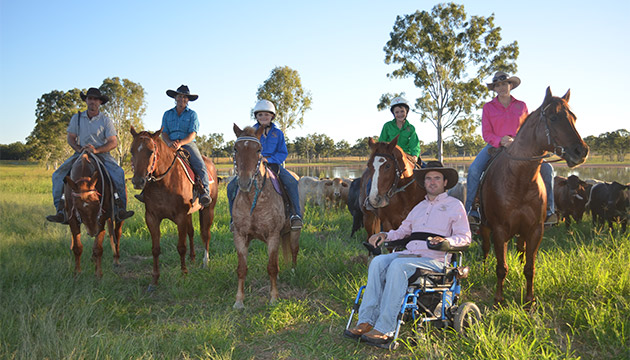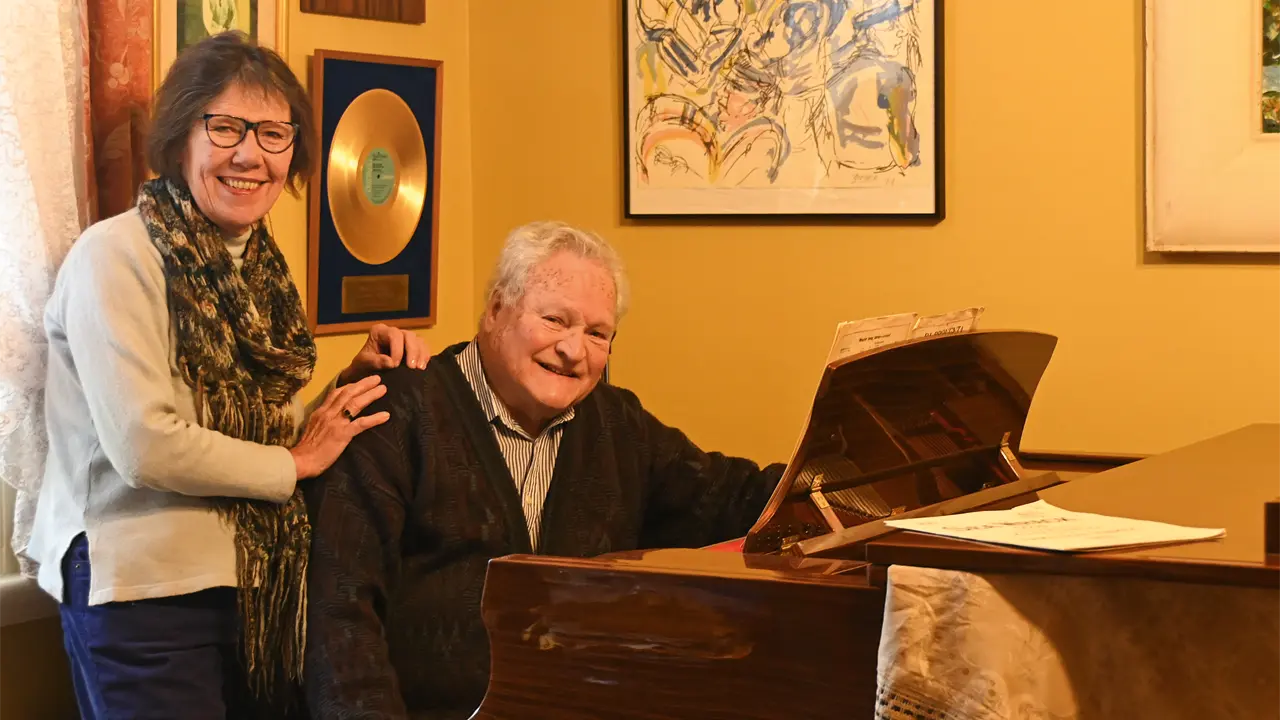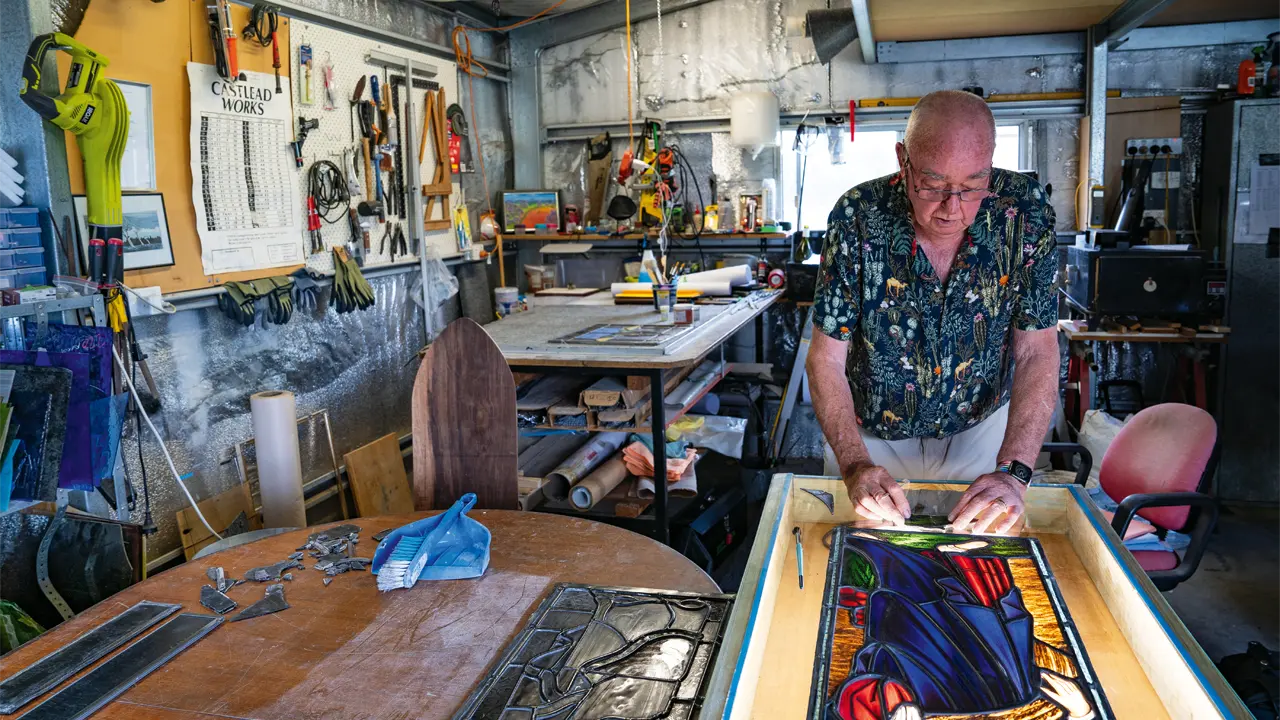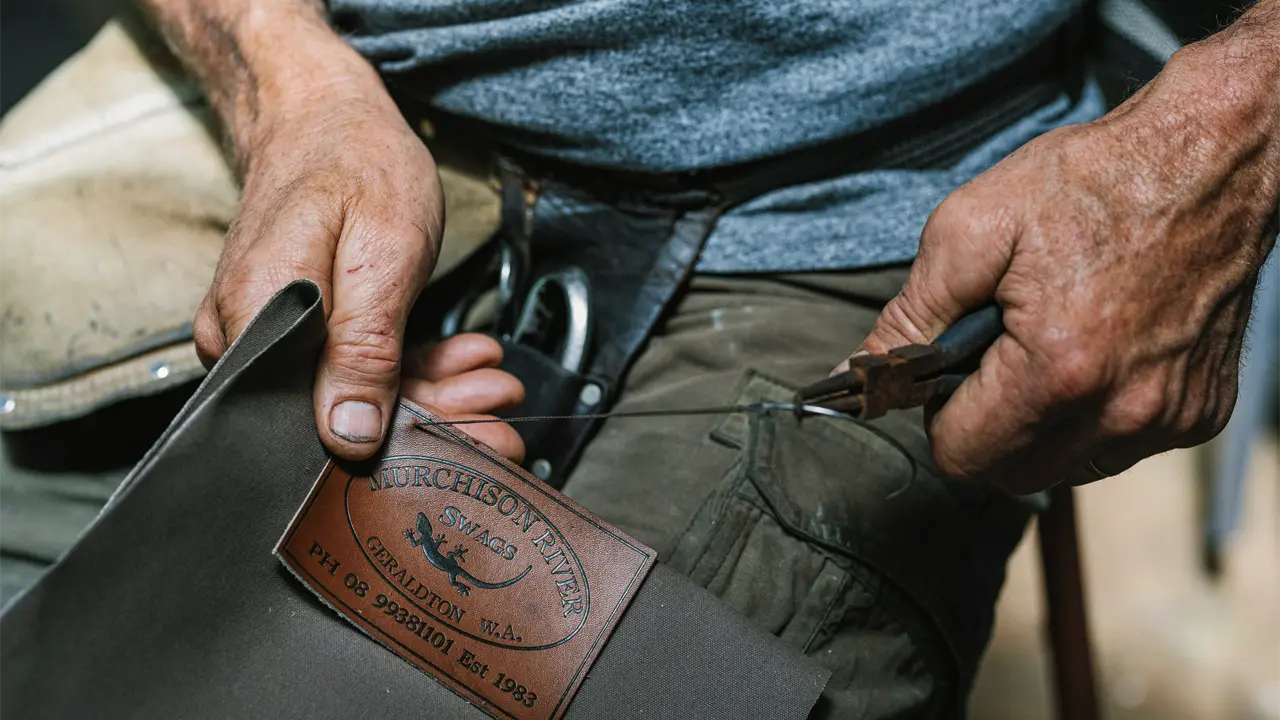Rob and Sarah Cook have established a successful cattle operation in Queensland, eight years after a paralysing accident in the Northern Territory.
Story by Kerry Sharp
Visitors to rural Gin Gin, in Southern Queensland’s sugar country, drive past a roadside sign entreating them to ‘Discover our Spirit’. Half an hour back towards the coast, on the outskirts of Bundaberg, a bigger bolder sign has recently appeared, promoting ‘Tender Sprouted Meats’. It’s the brand of an enterprise launched this year by an inspirational local farming family that brings a whole new meaning to the word ‘spirit’.
Rob and Sarah Cook and sons Braxton and Lawson lived and worked on their family’s isolated Northern Territory cattle station, Suplejack Downs, on the edge of the Tanami Desert, before leaving three years ago to pursue a dramatic lifestyle change 3000 kilometres away, on a 122-hectare former aloe vera farm at Bucca near Gin Gin.
Werribee has become the home block and feedlot for the RoSa (‘Ro’ for Rob, ‘Sa’ for Sarah) Cattle Company and houses the Cook’s unique hydroponic facility, which grows 1.5 tonnes of barley sprouts each day to be mixed with hay and molasses to fatten up their cattle. The feedlot is one of three properties being used for their multi-pronged livestock enterprise involving 750 black Brangus. The others are the Tandara breeding block – or calf factory – up the road near Agnes Waters, and the Cabbage Tree backgrounding block just north of Gin Gin, where the young cattle graze before moving onto Werribee.
On the back of robust online sales and exciting feedback from Meat Standards Australia on the quality of their European Union-registered beef, the Cooks have taken full control of their product from farm to fork and bought and revamped a run-down Bundaberg butcher shop to give Tender Sprouted Meats an urban outlet. During the grand opening in May – complete with guest appearance by Rob’s now-famous television House Rules cousins Luke and Cody Cook – 150 customers surged through the door.
“Leaving Suplejack and the Territory was the hardest thing we’ve had to do,” says 35-year-old Rob, who’s been in a wheelchair since breaking his neck in a 2008 mustering helicopter crash on Suplejack. “After the accident, we looked closely at options around Alice Springs and Katherine to see if we could live there and still be part of the station, and it wasn’t going to work. But we’ve got an incredible new life here now. Admittedly, we’ve created a monster, but it’s got its rewards, that’s for sure.”
Braxton, 10, and Lawson, 8, who only knew lessons through School of the Air, have settled into the local South Kolan School. The boys are handy helpers around the feedlot. “We rely on them pretty heavily but they love being part of the team,” Rob says. “Initially, they’d ask why all their cousins were going to the beach and they couldn’t. We explained we all had to share the workload so we could put money in the bank. They know now that once the work is done we can go to the beach or have a weekend off. We run a seven-days-a-week operation, but we try hard to factor in those times to have a break.”
Rob is paralysed from the neck down, except for slight movement in his right arm, but he keeps as useful as possible in the industry he’s grown up in and loves. The 2004 Australian bull-riding champion, Nuffield scholar and co-author of his biography When the Dust Settles is a confident, switched-on cattleman who constantly seeks better ways to do things. He’s an ideas man and his close friends and family make things happen.
Rob has become a champion for all disabled farmers wanting to stay and be useful on the land. He used his 2011 Nuffield scholarship to travel around the world, investigating innovative methods of adapting conventional agricultural machinery and equipment to make that possible. Knowing he’d need a big support crew, he embarked on a 730km wheelchair trek across the unsealed Tanami Track from Suplejack to Alice Springs to raise money to pay for travel.
Rob says yard modifications have proven a game changer for him being able to return to work.
This story excerpt is from Issue #108
Outback Magazine: Aug/Sep 2016










